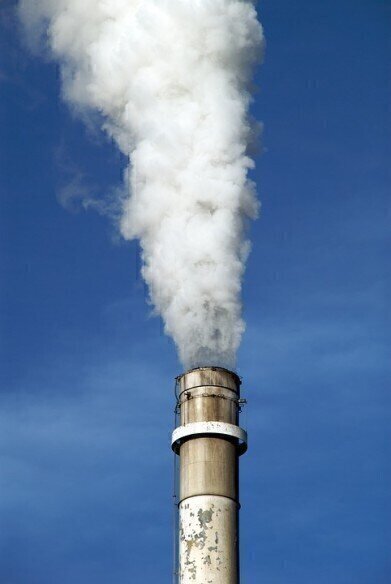Air clean up
Can Carbon Dioxide Be Made Useful?
Jan 03 2017
With climate change an ever increasing concern for the world’s nations, much has been made about how best to limit the amount of carbon dioxide (CO2) that we expel into the air. As well as curbing our emissions, scientists have also been investigating the possibility of removing the carbon that is already present in the atmosphere through a process known as carbon capture and storage (CCS).
Now, an Indian company has taken that idea one step further by not only removing carbon from the atmosphere, but converting into a useful commodity – in this instance, baking soda.
India fighting an uphill battle
India has been in the headlines recently due to the excessive pollution caused by the Diwali festival of lights. This Hindu celebration saw thousands of fireworks released all over the country, with its capital Delhi suffering particularly adverse air quality in the aftermath.
However, Diwali only highlighted what has been a long-term problem for the Asian giant. An assessment of nitrogen oxide (NOx) pollution over its capital revealed an alarming level of the pollutant in the city’s streets, earning it the title of one of the most polluted cities in the world.
The Diwali incident served to jolt the government into action, forcing them to take several measures to try and limit similar occurrences in the future. These included banning the sale of fireworks, prohibiting older vehicles from being driven on the city streets and imposing automotive regulations to effectively halve the number of passenger cars allowed on alternate days of the week. However, critics have stressed that India's pollution problems require long-term change, rather than quick-fix solutions like those listed above.
A new technique
Step forward Carbon Clean Solutions, an Indian company run by two young scientists who have refined traditional CCS techniques to optimise the process. The duo adopted the use of a more effective chemical in their design, resulting in almost 90% of the harmful gas being removed from emissions.
“Major carbon dioxide emitters like power plants and manufacturing facilities, in future may be asked to install carbon capture technologies or pay carbon tax,” the company explains. “Carbon Clean Solutions is innovating and working with customers to develop technologies that will cost effectively reduce the CO2 emissions from such large point sources.”
The pair have identified the neutralisation of emissions as a key area of environmentalism going forward and estimate that their technique could help to reduce global emissions by as much as 20%.
A world first
Carbon Clean Solutions has already teamed up with a coal-fired power plant in Tuticorin to bring the facility’s emissions down to almost zero. The optimised CCS process has allowed the plant to turn its harmful emissions into useful chemicals, which could have a range of potential applications.
Among other uses, it’s thought that the converted gas could be used to produce glass, detergents, artificial sweeteners and commodities made from paper. In addition to producing all of these things, the adoption of the process could also save the plant around 60,000 tonnes’ worth of CO2 emissions in the future.
“I am a businessman. I never thought about saving the planet,” said Ramachadran Gopalan, the owner of the plant. “I needed a reliable stream of CO2, and this was the best way of getting it.”
If Gopalan’s colleagues in the coal industry follow suit, India’s emissions could potentially drop rapidly in the coming years and decades. For the sake of its citizens and of the global population as a whole, let’s hope the technology proves to be a success.
Events
Jul 15 2025 Brighton, UK
Jul 23 2025 Sydney, Australia
Aug 24 2025 Stockholm, Sweden and online
Aug 27 2025 Busan, South Korea
Sep 02 2025 Mexico City, Mexico














